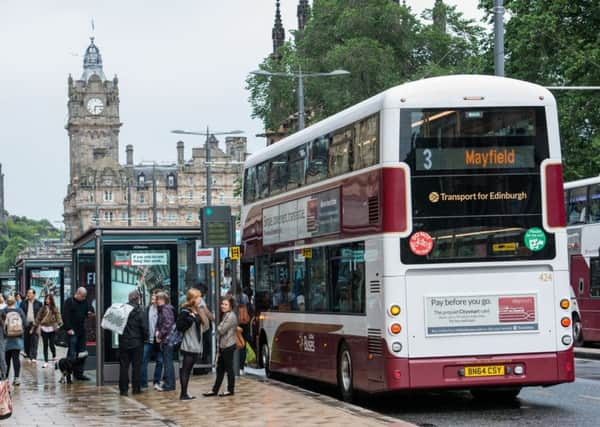Richard Hall: Something has to give if we are to beat congestion


Of course, this isn’t anything new.
Ever since the turn of the century, Edinburgh has seen some significant proposals for tackling our current and projected problems from congestion. Successful priority measures implemented in the late-90s saw the introduction of Greenways which went some way to restoring the balance of car use and public transport and improving the reliability and speed of bus services. Sadly such measures have now been all but eroded and proposals for a city centre congestion charge was ultimately rejected by the public. Critical intervention is now required by both national and local government.
Individual transport providers, such as ourselves, can only operate within the correct environment created by political decision-makers and both parliament and the council know it’s a huge challenge but one which can’t be avoided if we are to continue to drive economic growth and investment in our city and the wider Scottish economy. We know that investing in public transport and other active travel modes such as walking and cycling and ensuring improved speeds and connectivity for all transport modes is the only realistic way to accommodate the growth needed.
Advertisement
Hide AdAdvertisement
Hide AdApart from ensuring appropriate funding and policies are in place to make this a reality, the other key priority has to be addressing current levels and patterns of car usage. I drive, as do many of those responsible for ensuring we tackle congestion on our roads, and it’s obvious that private vehicles are essential for many people for a wide variety of reasons. So, this isn’t some anti-car agenda, just the simple but – for some – unpalatable fact that the car remains the biggest barrier to reducing jams and pollution in the city. By way of a comparison one double-decker bus only takes up around 12 metres of road space, but carries up to 80 people and on the whole is proven to be more environmentally friendly.
As some have observed, we aren’t “stuck in traffic”; we are the traffic! Every travel decision we make as individuals has an impact and sometimes making those decisions aren’t easy. Nor are the solutions simple. If they were national government and councils would have introduced them already. Every investment or policy decision that might benefit one mode of transport can be perceived as negative for another.
The right balance is what’s needed. Naturally, we will make the case for greater bus priority measures. We see these as essential to the continued provision of a customer-focused, efficient and profitable network so we can re-invest and provide vital socially-responsible services for all. Others may argue differently.
Ultimately though, something has to give. The current journey we’re on is unsustainable – economically and environmentally.
Richard Hall is Managing Director, Lothian Buses